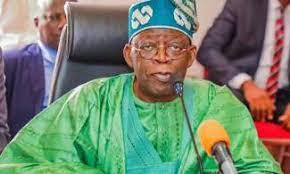The Minister of Humanitarian Affairs, Disaster Management and Social Development, Sadiya Umar Farouq, has assured the vulnerable population of the country of the Ministry’s commitment to a coordinated provision of humanitarian assistance.
According to a statement Friday by the Principal Information Officer, Mrs Grace Osuji, speaking at the launch of the ECOWAS – FMHADMSD-WFP Stabilization Fund for the North East and North Western States in Jibia and Faskari local government area of Katsina State, the Minister said that “ECOWAS came up with interventions to assist Member States in these catastrophic situation; including Nigeria.”
Represented by the Director of Humanitarian Affairs, Alhaji Ali Grema, she said, “the stabilization fund, which we are launching today, provides targeted interventions to beneficiaries, including grinding machines donated to 603 beneficiaries in Borno, Adamawa, Yobe and Katsina states and nutrition components distributed to 9,380 children and 1,200 persons living with disability”.
According to the Minister, the procedures of selecting the beneficiaries were drawn from the National Social Register and is in-line with the Federal Government’s desire of caring for the vulnerable persons in the society.
Hence, this is one clear practical example of operationalizing the National Social Register in carrying out humanitarian interventions in Nigeria.
Continuing, she said: “Let me at this juncture appreciate the leadership of ECOWAS Commission for their due diligence in implementing the resolution of the Member States with regards to this support and for providing the much technical support through the development of the project proposals.
“Also, I wish to commend the World Food Program for the due diligence they deployed in implementing the project and for always being a reliable partner in the fight against hunger. Let me acknowledge that the implementation of this project couldn’t have been possible without the support and cooperation of the Katsina State Government.
“Therefore, we sincerely thank the government and the people of Katsina state for all the support especially for the generosity and hospitality accorded to us since our arrival in the state.
“For Nigeria, this ECOWAS intervention was provided the Federal Ministry Humanitarian Affairs, Disaster Management and Social Development in two projects; first, Post Flood Humanitarian Assistance second, humanitarian stabilization fund. These projects are being implemented by Nigeria Red Cross Society (NRCS) and World Food Program (WFP) on behalf of the Ministry.”
In her address, the Programme officer, WFP, Agnes Mungatia, said WFP is in collaboration with the FG and ECOWAS in its programme on alleviating food and nutrition insecurity in Katsina, Borno, Adamawa and Zamfara states, adding that the programme was also building sustainable livelihood for vulnerable families.
“In Katsina, 208 households or 1,398 individual beneficiaries receive cash transfers of N27, 800 every month through their UBA prepared cards in order to purchase their preferred food from local markets.
“Beneficiaries are usually encouraged to buy a wide range of nutritious local food from the local markets supplied by local producers and that has an additional advantage of stimulating local markets and local agricultural production,” she said.
Mungatia added that to prevent acute malnutrition in the first 1000 days of their lives, the programme also provide nutrition assistance to children between 6–23 months and 4,690 children would benefit from it.
She said the programme was also assisting pregnant and lactating mothers from vulnerable households in which 644 families will benefit in Faskari and Jibia LGAs of the state.
In his remarks, the Katsina state governor, Aminu Bello Masari, represented by his Special Adviser, Department of Empowerment and Social Intervention, Alhaji Abdulkadir Mamman Nasir, thanked ECOWAS, the Federal Government and all the partners for the gesture, promising to devise a mechanism to sustain the programme beyond its timeframe in the state, with the view to benefiting more communities.




